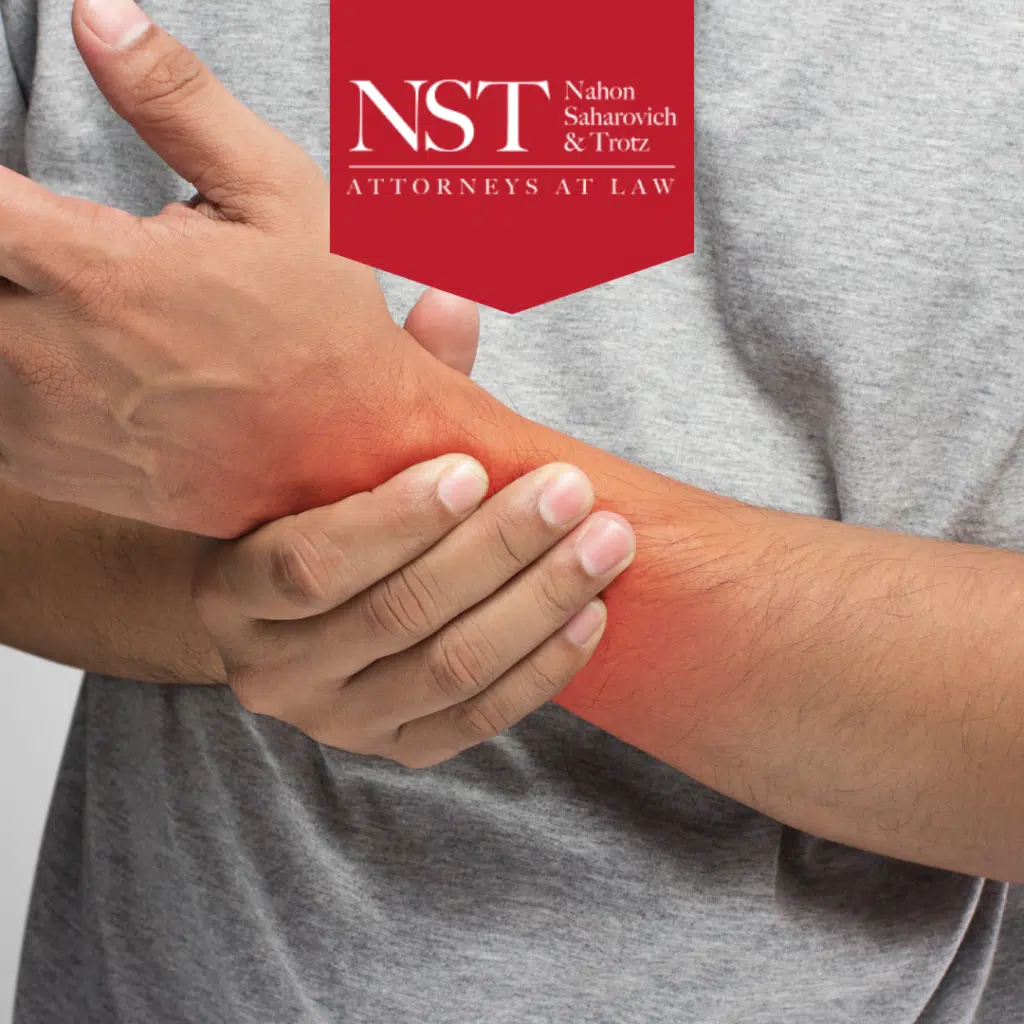After a car accident, the most important thing to do is to check yourself for injuries. Injuries aren’t always apparent right away. Many types can take hours, days, or even weeks to show up after a car accident, including whiplash, concussions, herniated discs, and internal bleeding. Getting prompt medical attention is key for protecting your health and documenting your condition for legal proceedings that may result from the crash.
When a person is involved in a car accident, the first thing they do is try to determine whether they’ve been hurt. If they aren’t feeling pain and can’t find any obvious signs of injury, they may believe they’ve been lucky and escaped being injured in the crash.
However, injuries from car accidents don’t always show up right away. In fact, for many types of injuries, it’s common for them not to appear until hours, days, or even weeks later.
Why Do Injuries Sometimes Seem to Be Delayed?
There are a few reasons why injuries from a car accident may not show up right away.
Endorphins
When you’re in a highly stressful situation such as a car accident, your body releases a variety of substances to help you cope with the emergency situation. These include stress hormones such as epinephrine (adrenaline), along with substances like endorphins.
Endorphins act on the nervous system to block the perception of pain. In fact, opiate pain medications and endorphins actually bind to the same receptors on nerve cells, meaning that they work in the same way. In other words, having endorphins in your system is like taking a painkiller.
This is useful in a crisis situation because it ensures you won’t be distracted by pain as you do whatever you need to do to survive. However, it also means that any injuries you sustained may not be obvious right away.
It takes some time for the endorphins to dissipate after the stress is gone. As they gradually leave your system, you will become more and more able to feel pain from the injury.
Swelling
Another reason why injuries might seem delayed is that it takes time for swelling to occur after an injury. Swelling generally occurs after any type of tissue damage because the body needs to increase blood flow in order to bring cells and nutrients to the area to repair the injury. Although the process begins quickly, swelling will continue to increase over days following the injury.
In many cases, soft tissue injuries (such as injuries to muscles, ligaments, and tendons) are not obvious right away. However, as the swelling increases, the area will become increasingly stiff and painful, and the injury will become more apparent.
Bleeding
Another reason for delayed injury after a car crash is bleeding. While external bleeding after an injury will be apparent, internal bleeding may not be as obvious right away. This is particularly true if the bleeding is slower.
For example, a head injury can cause a rupture of veins inside the skull. These may leak blood slowly, causing a gradual increase in pressure inside the skull over the hours to days following the injury. The pressure causes damage to the brain, and blood itself is also toxic to brain cells. This type of bleeding can lead to severe symptoms or may even be fatal if left untreated. However, the symptoms often don’t show up immediately.

What Types of Injuries May Show Up After a Car Crash?
Certain types of injuries are generally obvious at the time of the crash, such as amputations. However, many other types commonly appear much later.
Some injuries that may appear in the days to weeks following a car accident include:
- Whiplash. This is an injury to the neck resulting from rapid back-and-forth movements of the head during the crash. It most commonly results from a rear-end collision. Whiplash causes symptoms like neck pain and stiffness, headaches, and dizziness. Experts are still working to understand this condition better.
- Concussion. Also known as a mild traumatic brain injury, this type of injury occurs when the brain undergoes rapid movements within the skull. This causes biochemical changes in the brain that interfere with its function. Affected people may notice symptoms like changes in mood, difficulty concentrating or thinking clearly, headaches, drowsiness, and dizziness. Almost always, the symptoms will gradually resolve on their own. However, it’s important to get a medical evaluation to rule out a more serious brain injury.
- Herniated discs. The spinal discs are located between the bones of the spine and serve to cushion movements. They’re made up of a gel-like material and surrounded by a thicker layer that contains this material. During a car accident, this gel-like material can be forced through the outer layers of the disc. Some people call this a “slipped disc,” although the disc has not actually slipped but ruptured. A herniated disc may press on nerves, leading to symptoms like tingling, pain, and muscle weakness. This is sometimes known as a “pinched nerve.”
- Soft tissue injuries. This category includes injuries like strains, sprains, and contusions (bruises). In the first few days after the crash, swelling often leads to worsening symptoms, such as pain and reduced mobility.
- Internal bleeding. Depending on the specifics of the injury, blood loss may be very rapid or it may occur more slowly. As previously discussed, a head injury can lead to a slow bleed in the skull, which can cause severe brain damage and even death if it’s not addressed. Bleeding can also occur in the chest, abdomen, joints, or other parts of the body, and symptoms may develop slowly over the course of a few days.
- Mental health concerns. Although your physical health can clearly be impacted by a car accident, you should pay close attention to your mental health too. Some people develop post-traumatic stress disorder (PTSD), anxiety, or depression after a car crash. These conditions can be severe and interfere with your ability to live your life. While it’s normal to feel stressed and anxious for a short period of time after the event, if these symptoms last longer or start to get worse, it’s a good idea to talk with a mental health professional to help you cope with what happened.
While all of these conditions commonly result in delayed symptoms, there’s a lot of variation between individuals. Some people experience symptoms within hours, while for others, it takes longer. It’s important to watch yourself closely for any symptoms for at least two weeks after a car crash.
Seek Medical Care After a Car Crash
In a major car crash, first responders are often summoned to the scene. They’ll offer medical assistance to the victims of the crash. Sometimes, people are tempted to refuse medical attention at this time. Because they’re not having any pain or other obvious symptoms, they feel like medical attention is unnecessary. After the trauma of a car accident, many people simply want to get home to their families rather than getting a medical evaluation.
However, because the symptoms of an injury can be delayed, you should always accept medical attention after a car crash. Even if you feel okay right after the accident, you could have significant injuries that you aren’t yet aware of. It’s better to let medical professionals check you out and make sure that you’re truly okay.
After a minor car crash (such as a “fender bender”), first responders are usually not called to the scene. However, injuries can occur even during a relatively low-speed crash. It’s a good idea to closely monitor yourself for any symptoms and see a doctor as soon as possible if you notice anything unusual.
In the days after an accident, it can be tempting to dismiss pain as being insignificant. Many people don’t want to complain about something that seems fairly minor. However, even minor symptoms can sometimes be an indication of a serious underlying injury. An untreated injury may lead to chronic medical issues, so you should not ignore your symptoms.
How long after a car accident can you file a lawsuit?
A law known as the statute of limitations limits the amount of time you have to file a lawsuit after a car accident or other event. The specifics differ in each state, but you may have as little as one year to file.
Don’t put off considering legal action if you’re involved in a car accident that was someone else’s fault. If you wait too long to file, then you may lose your opportunity to seek the compensation that you deserve.
Proper documentation of your medical condition will be important in any legal proceedings that result from the crash. This is another reason why you shouldn’t hesitate to seek medical attention if you’ve been in a car accident.
 Skip to content
Skip to content


